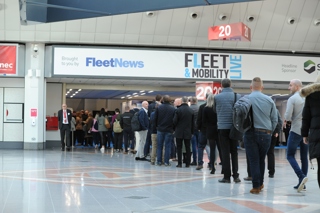By Paul McCorkell, director of business rental UK & Ireland at Enterprise
Tailored and supportive employee mobility brings both cost and carbon savings – and businesses are also now discovering its potential in recruitment and retention.
The opportunity lies in understanding enough about employee travel habits to provide a truly supportive solution.
Whether employees live in rural, urban or suburban areas, many organisations know comparatively little about the way they travel to and for work.
In the wake of the pandemic, many are embracing hybrid working. They commute to the office for part of the week and work from home for the other portion. They undertake business trips either from home or their workplace, many of which are ad hoc.
‘Home’ may also be multiple locations – a holiday rental or a relative’s house – as well as their residence.
When we surveyed UK workers who drive a car for business, we found that almost half (42%) would like their employer to make it easier for them to use a mix of transport options for business trips.
Two-thirds (64%) also said their companies aren’t encouraging multi-modal travel.
For these reasons, clients are increasingly looking for advice on designing better travel policies with broader mobility options.
This could involve coordinating trials within targeted areas of their business. These provide intelligent data that subsequently enables the creation of a mobility strategy that’s tailored to meet the requirements of both the organisation and its employees.
The travel data on which many strategies were previously based was gathered before the pandemic. It may well need updating due to the wholesale shift towards hybrid working.
When we review this data alongside customer mobility and HR teams, it often becomes apparent that current mobility options are not fit for purpose, with clear repercussions for both employee recruitment and retention.
Current travel policies often focus on long or overseas journeys, not those shorter, sub-100-mile journeys that fall beneath the radar and aren’t being proactively managed. Businesses therefore know less about the multi-modal solutions that could support these trips.
For one, as car club vehicles are increasingly located close to railway stations as well as other new modes of shared transport – such as e-scooters and bike hire – they can have a powerful effect on streamlining and simplifying business travel while simultaneously reducing emissions.
Data is key. Businesses of all sizes are looking to gather and interpret travel data that’s demonstrably relevant to their operational capabilities, commercial viability and business objectives, specifically recruitment.
Once this is collated and interpreted, it’s possible to evolve or adapt the services they provide to new and existing employees to better support their mobility requirements and expectations.
Compliance and booking platforms can play a role here, enabling detailed data capture on business travel while simultaneously saving fleets money by ensuring people consistently make the best-informed decisions.
Better data can shine a spotlight on how hybrid working practices have now resulted in pool cars becoming underutilised as employees increasingly work from home. It could help fleets incorporate personalised journey planning and create programmes that make travel more affordable and accessible – as well as with a lower carbon footprint.
We’ve found from talking to customers that people want travel options that are relevant to them – and by offering those choices and empowering employees to take them, businesses are creating a more engaged and satisfied workforce and answering some of their most important questions:
How do I travel for work if I’m not commuting every day? Can I use business travel solutions like car club membership for my own leisure trips at the weekend? What transport choices are available to me and how do I access them? Is the travel policy enabling me to make better, lower-carbon decisions about how I get from A to B?
It’s not just about keeping existing employees, but using business travel as a tool for attracting new ones. As commuting and business trips evolve, this is the ideal time to review how organisations provide mobility.
With data to help fleets understand what employees want and need, they can rethink future organisational mobility, build a stronger workforce, and communicate an important message around their own employee care.





















Login to comment
Comments
No comments have been made yet.